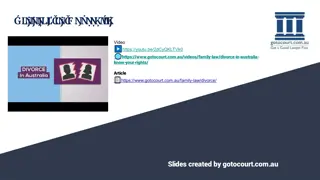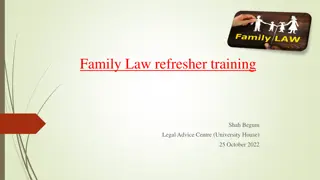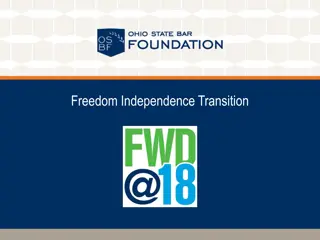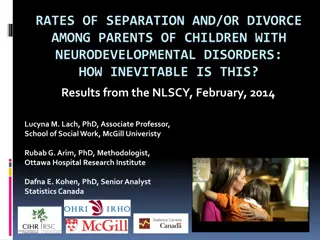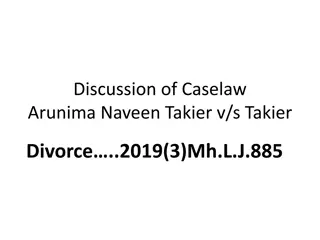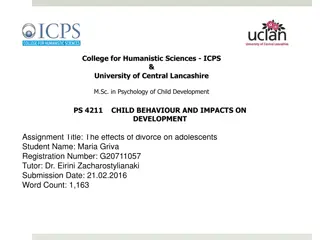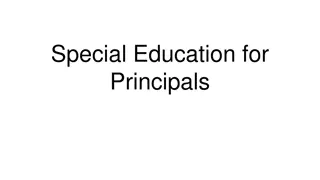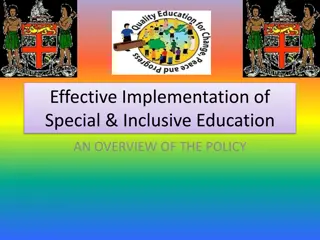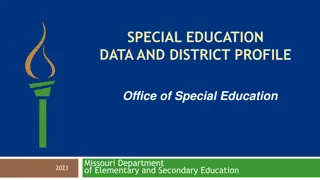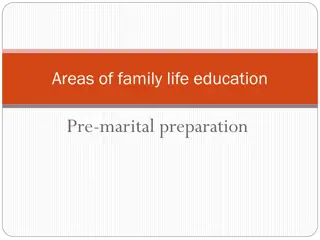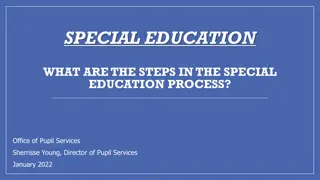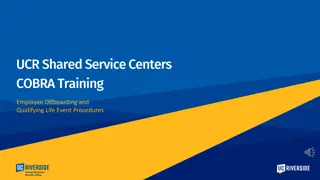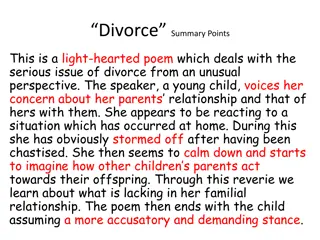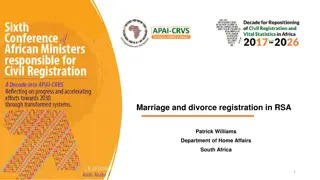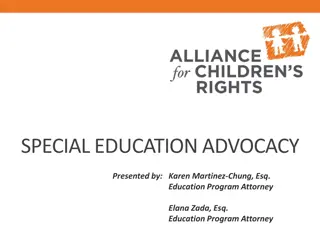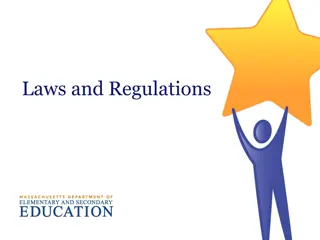Special Education Considerations in Divorce
Addressing the impact of divorce on children with special education needs, this article highlights the challenges faced by parents in making educational decisions and accessing services for their disabled child. Key points include the importance of parental involvement in education and medical decisions, implications of sole decision-making, parental participation in IEP or 504 meetings, and access to records under the Illinois School Code.
Download Presentation

Please find below an Image/Link to download the presentation.
The content on the website is provided AS IS for your information and personal use only. It may not be sold, licensed, or shared on other websites without obtaining consent from the author. Download presentation by click this link. If you encounter any issues during the download, it is possible that the publisher has removed the file from their server.
E N D
Presentation Transcript
SPECIAL EDUCATION CONSIDERATIONS IN DIVORCE Micki Moran, J.D. The Child and Family Law Center: A division of Grund &Leavitt
THE SCOPE OF THE PROBLEM 1 in every 48 children in the United States has a diagnosis of autism; 1 out of 9 children under the age of 18 in the United States receives special education services; 1 in 26 American families reported raising children with a disability; The National Organization in Disability reported that parents spend more than 40 hours per week with their disabled child. This is equivalent to a second full-time job.
Client should provide documents, evaluations, IEP s or 504 Plans. Treatment summary ASK THE QUESTION IN AN INTAKE School reports A schedule of the child s day and week Impact on other siblings Caregiving history
Ideal if both parents can be involved equally in decision- making on education and medical. ALLOCATION OF PARENTAL RESPONSIBILITIES If one parent is allocated educational and medical decision-making this limits the other parents active participation in school and medical.
IMPLICATIONS FOR SPECIAL EDUCATION DECISIONS Parent allocated sole decision making for education has the final say and is able to consent or withhold consent for special education services. The parent who has sole decision making for educational issues also is the only one who can consent to an evaluation if needed. Disputes arise even when both parents share decision-making-only one parent necessary for consent. Schools look to the language in the Allocation Judgment for guidance. If only one parent has decision making that is the only parent who is legally able to bring a due process action against the school.
PARENTAL PARTICIPATION IEP OR 5044 MEETINGS
BOTH PARENTS MAY ATTEND
ACCESS TO RECORDS 105 ILCS 10/1 Illinois School Code 105 ILCS 10.28.1 Illinois School Code
Student consent required under most circumstances for release of mental health records at age 12. Schools typically require this release in order to share records. OVERLAP BETWEEN SPECIAL EDUCATION& MENTAL HEALTH CODE Can become a hot button issue if student refuses to allow one parent access. If parents disagree on treatment may cause providers to be hesitant.


